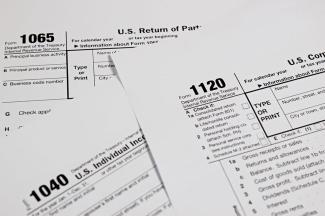Managing tax obligations for businesses can be a complex and time-consuming process. In order to ensure compliance with local, state, and federal tax laws, businesses must engage in tax planning, compliance, and reporting activities. This blog will provide an overview of the process of managing tax obligations for businesses, including best practices for tax planning, compliance, and reporting.
Tax Planning
Tax planning is the process of analyzing a business's financial situation in order to identify opportunities for minimizing tax liability. This can involve reviewing tax laws and regulations, analyzing financial statements, and forecasting future earnings. There are several strategies that businesses can use to minimize their tax liability, including:
-
Deductions: Businesses can take advantage of various deductions, such as those for charitable donations, business expenses, and depreciation.
-
Credits: Tax credits, such as those for research and development or renewable energy, can help to reduce a business's tax liability.
-
Entity Structure: The structure of a business entity can have a significant impact on tax liability. For example, a sole proprietorship is taxed differently than a corporation or LLC.
-
Timing: Businesses can time certain transactions, such as sales or purchases, in order to minimize their tax liability in a given year.
Compliance
Tax compliance refers to the process of ensuring that a business is following all relevant tax laws and regulations. This includes filing timely and accurate tax returns, paying taxes owed, and maintaining proper documentation. Failure to comply with tax laws can result in penalties, fines, or even legal action.
To ensure compliance, businesses should:
-
Keep accurate records: Maintaining proper documentation, such as receipts and invoices, can help businesses to accurately report their income and expenses.
-
Stay up-to-date on tax laws: Tax laws and regulations can change frequently, so it is important for businesses to stay informed and make any necessary adjustments.
-
Seek professional advice: Tax professionals can provide guidance on compliance issues and help businesses to avoid mistakes that could lead to penalties or fines.
Reporting
Tax reporting refers to the process of submitting tax returns and other required forms to the appropriate tax authorities. Businesses must report their income and expenses accurately and in a timely manner. This involves completing various forms, such as the 1040 for individuals or the 1120 for corporations, and providing any necessary supporting documentation.
To ensure accurate reporting, businesses should:
-
Use reliable accounting software: Accounting software can help businesses to accurately track their income and expenses and generate the necessary tax forms.
-
Review tax returns carefully: Before submitting a tax return, businesses should review it carefully to ensure that all information is accurate and complete.
-
File on time: Filing tax returns on time can help businesses to avoid penalties and interest charges.
In conclusion, managing tax obligations for businesses requires careful planning, compliance, and reporting. By taking a proactive approach and staying up-to-date on tax laws and regulations, businesses can minimize their tax liability and avoid costly penalties or fines. Seeking professional advice and using reliable accounting software can also help to ensure accurate reporting and compliance.



